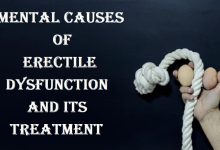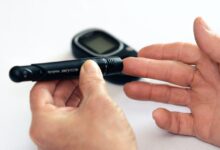
Hemorrhoids are cavernous bodies (consisting of tissues and blood vessels) that ensure that your anus is closed airtight and leak-tight. So they actually belong to our body. Problems with hemorrhoids only arise if the cavernous bodies are regularly under high pressure. The high pressure causes them to set up, causing you to suffer from stunted and dilated blood vessels at the bottom of the rectum and just above the anus. These blood vessels can cause swelling both internally and externally. Hemorrhoids can cause itching, pain, and/or bleeding around the anus, especially when you go to the toilet.
You should consult a specialist proctologist who knows the procedures and has the necessary experience.
We distinguish three types of hemorrhoids
Internal hemorrhoids: these are located in the rectum. External hemorrhoids: These are located after the sphincter muscle, outside the rectum. Bulging hemorrhoids: These are internal ones that have protruded through the sphincter muscle. It is possible for these types to come out after defecation and then retreat later. They can also secrete mucus. As long as the hemorrhoid is on the inside of the anus, there is usually nothing to worry about. If you have pain in the anus, it may not always be due to hemorrhoids.
Pain and/or bleeding can also be caused by a tear in the anus. Such a tear could also have been caused by too much pressure on the anus. Hemorrhoids are caused by high pressure around the anus. But where does that high pressure come from? This may be because: You often suffer from blockages (hard stools). You squeeze hard. You sit on the toilet for a long time. You suffer from diarrhea for a long time.
You are overweight
You are pregnant or have just given birth. You are over thirty. You eat too little fiber. You have a little exercise and you sit a lot. There is little you can do about the factors of heredity and pregnancy. You can try to influence bad bowel movements. Sometimes it helps to drink more water and eat fiber-rich foods. This makes the stool softer and you don’t have to squeeze as hard. The movement has a positive influence on bowel function and therefore your bowel movements.
Do you have a sedentary occupation?
Then try to add several exercise moments to your day. Walk to your colleague instead of calling, take a walk during the lunch break, or take the stairs instead of the elevator. If it doesn’t fit during working hours, go for a walk or bike ride after dinner. When you are pregnant, you have an increased risk of hemorrhoids. This is partly because the baby puts pressure on the abdomen and the veins swell due to hormonal changes. The first symptom of hemorrhoids is usually a small amount of blood in the stool. When you are pregnant, it is extra important to keep your stools soft so that you avoid straining during a bowel movement. This will reduce the risk of hemorrhoids during your pregnancy.
How do I prevent this situation?
If you are pregnant and you need a laxative or hemorrhoid cream, they advise you to do this in consultation with your midwife. After childbirth, you can also suffer from hemorrhoids, because during childbirth there is extra pressure on the blood vessels around the anus. This pressure increases the risk of hemorrhoids. In most cases, they disappear within two weeks after delivery, because the hormone balance returns to normal after delivery. How do I recognize hemorrhoids? Hemorrhoids are not life-threatening and not everyone has the same symptoms. The first symptoms of hemorrhoids are often a little blood in the stool and discharge, irritation and itching. Other symptoms can include Painless bleeding during bowel movements. Anal pain. Rectal burning or painful sensation. Swelling around the anus. ‘Leakage’ of feces.
We distinguish between internal and external hemorrhoids
Internal hemorrhoids generally do not cause any symptoms. Internal hemorrhoids can be painful if they are squeezed out through the anus (also called a ‘prolapsed hemorrhoid’). When this happens, it causes irritation and itching.
External hemorrhoids are more uncomfortable than internal hemorrhoids because the overlying skin becomes irritated. If a blood clot forms within an external hemorrhoid, hemorrhoids can become very painful. Do not use toilet paper after going to the toilet if you suffer from hemorrhoids. It is better to use moist toilet paper or special hemorrhoid wipes as it is softer than regular toilet paper.
How do you prevent hemorrhoids?
Hemorrhoid symptoms can be prevented by not having to strain during a bowel movement. So you have to keep the stool soft. You keep the stool soft and flexible by going to the toilet in time so that the stool does not sit in your intestines for too long. If the stool is in the intestines for too long, it will become hard and dry. Eating fiber and drinking enough also helps keep stools soft. In addition to eating healthy and plenty of fiber and drinking a lot, exercise also helps to promote digestion. If you move, your bowels will also move.
Therefore, a walk is good for digestion. In addition to adjusting your diet, you can also take into account the use of coffee, tea, carbonated drinks, and sugar. They stimulate the anus and you can get itching and eczema. A warm bath allows the anus to relax and keeps the area around the anus clean.



